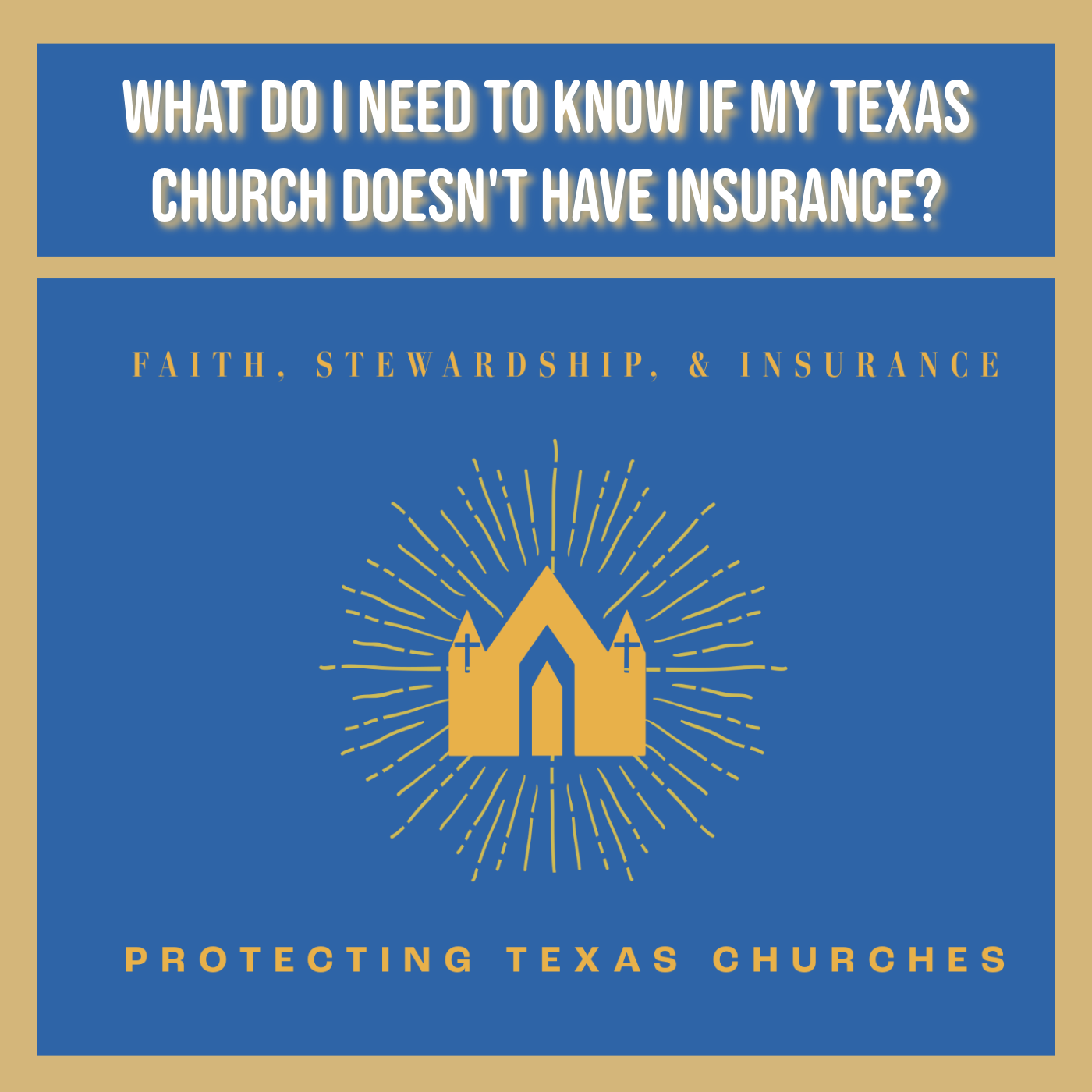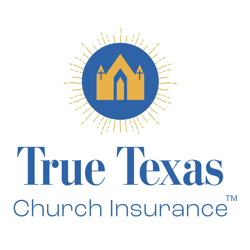Key Takeaways
- Once a Church Lets Coverage Lapse, Getting Insurance Again Becomes Much Harder
Carriers see gaps in coverage as a serious red flag. - Expect Higher Premiums and Fewer Choices When Reapplying
Texas storms, aging buildings, and market volatility have pushed church insurance costs sharply upward. - A Church Insurance Specialist Can Reopen Doors and Prevent Costly Mistakes
Navigating non-admitted carriers, surplus lines markets, inspections, and activity-related risk takes expertise. Working with a specialist who understands the Texas church landscape helps you avoid blind spots, secure realistic coverage options, and rebuild a long-term insurance strategy.
For more information on this topic, see the FAQ section at the bottom of the page.
For over a hundred years, a small church in Abilene had stood strong through storms, droughts, and everything in between. The building was old but full of character. The fellowship hall still had paneling from the 1970s. But it was home, and it was in great shape.
Two years ago, the church leaders made a hard decision. Their property insurance premiums had skyrocketed, and the budget just wouldn’t stretch. So when the church insurance coverage renewal came up, they let the policy lapse. They figured it would just be temporary—just until things evened out financially.
But that “temporary” gap stretched into months, then a couple of years.
And now, after a nasty spring storm tore the roof off a neighboring church, they were having second thoughts about the potential risks. What if it happened to them? What would they do?
They started making calls to church insurance agencies, only to find out the world of church insurance was not working not in their favor.

It’s Still Possible to Get Covered, But It May Be Tougher To Secure
Most churches never consider how hard it might be to get coverage back after a break between church insurance policies. But insurance providers see a gap like that as a red flag. Carriers have a list of worries and questions.
- Why did they drop coverage?
- Is there a potential insurance claim they want to file?
- Are there problems with the property?
- Can they afford the premiums going forward?
Some church insurance companies will flat-out decline to quote if there’s been more than a year without insurance. Others might still offer essential coverage, but it comes with higher deductibles, exclusions for older parts of the building, or limited payout terms.
If your church hasn’t had insurance in a while, expect questions. A lot of them. But the door isn’t closed. There are church-specific programs that may still be open to you. They just may cost you.

Church Insurance Costs Will Be Higher Than You Remember
If your last insurance policy was two or three years ago, prepare for sticker shock. Prices are up across Texas. Churches that were paying $5,000 a year are now getting quotes for $10,000 or more. And that’s without major changes to the building or the ministry.
The reason? Texas keeps leading the country in billion-dollar storms. Between hail, wildfires, tornadoes, and windstorms, insurance companies are paying out more property damage claims than ever! And you know they’re passing those costs to policyholders.
If your building is older, has a roof over 15 years old, or has never been updated for plumbing or wiring, you will see even higher rates for your church property coverage. And wait until you learn about limitations on that coverage.
This is one of the biggest reasons churches should avoid going without insurance. Once you step away, it’s hard and expensive to get back in.
You’ll Likely Have Fewer Choices
The church in Abilene called around to several insurance agencies thinking this would help them get the best deal. Some of these independent agencies never even called back. Others said they didn’t offer policies for churches anymore because they didn't have solutions. One even asked for full building inspections before they’d even consider finding them coverage options.
Sadly, this isn't uncommon anymore.
Many traditional carriers have left the Texas church insurance market altogether. Most others have tightened their underwriting requirements or now only work with churches that have had continuous coverage and no losses.
So where does that leave a church like our friends in Abilene?
For most uninsured churches, the options usually come through surplus lines markets or non-admitted companies. These are special programs that provide insurance for churches but expect the church to shoulder a larger portion of the financial burden.
While they can still offer solid protection, they may come with more fine print, and less flexibility. This makes it even more important to understand what’s actually in the policy. Especially if you church has a large variety of risks.
Your Ministry Activities May Limit or Affect Your Options
Churches aren’t just places to worship on Sundays. Many host weekday food programs, rent space to nonprofits, run youth events, offer counseling services, or other not so common risks.
It is important to understand that all of these things can affect your insurance requirements. :And each of them will affect your church insurance costs.
Underwriters want to know everything that happens on your church grounds. If you allow outside groups to use your building, they will ask whether those groups carry their own insurance. If you run events offsite, like youth retreats or mission trips, they may want to add special terms or require an event policy.
It’s not that these things are bad. They just change how your risk is evaluated and priced.
So if your church does more than just Sunday services, be ready to explain those activities clearly. It’s the only way to get coverage that matches how you actually operate.
Specialists Help You Avoid Expensive Mistakes
When the church in Abilene reached out to Insurance For Texans, things changed. This connected them to an experienced insurance agent who specializes in churches.
Instead of trying to jam their old policy into today’s market, the church insurance specialist started asking questions. This independent insurance agent then walked them through what had changed, what their options were, and how to piece together a comprehensive church insurance solution to fit their needs.
This took a bit of time due to the changes in coverage for churches. But the church board had a better understanding of minimum deductibles, coverage requirements, and even ways to limit premiums by adjusting coverage terms.
This is how True Texas Church Insurance works for churches all across Texas. More importantly, it gave them peace of mind again.
Click the button below to talk to someone who knows church insurance and can help you protect your ministry with True Texas Church Insurance.
Frequently Asked Questions
Can my church get insurance again if we’ve gone without coverage for years?
Yes, but it will be more difficult. Some carriers won’t quote at all, and those that do may require inspections, higher deductibles, or limited coverage. Specialized church insurance programs can still help you secure protection, but expect more questions and stricter terms.
Why are the premiums so much higher now than they were a few years ago?
Texas leads the nation in billion-dollar weather disasters. Hail, tornadoes, wildfires, and high winds have driven up claims across the state. Insurers raise premiums to offset those losses. Older buildings, outdated roofs, and gaps in coverage drive prices even higher.
What information will insurance companies want if my church hasn’t been insured?
Underwriters will ask about the reason for the lapse, building conditions, roof age, electrical/plumbing updates, ministry activities, offsite events, outside groups using your facility, and financial stability. The more clearly you can explain your operations, the more likely you are to secure realistic coverage.



